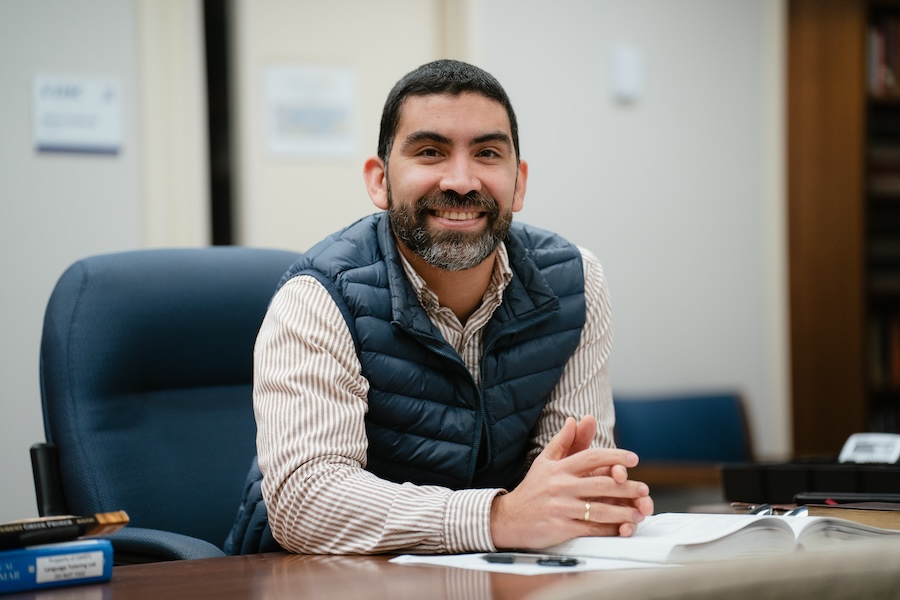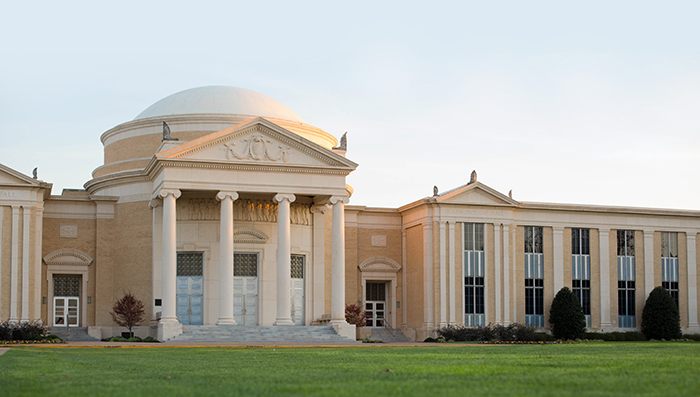Sloan tells Southwestern, IACE gathering evangelism is an eschatological urgency

The preaching of the Gospel contains an eschatological urgency proclaimed Robert Sloan, president of Houston Christian University, during his Sept. 21 chapel message at Southwestern Baptist Theological Seminary.
Sloan was on campus to speak in chapel as one of the plenary sessions of the International Alliance of Christian Education conference being held at the Fort Worth institution.
Sloan preached through the overarching story of Scripture to show the connection of the Old Testament and the New Testament for a biblical understanding of evangelism. He cited various passages of Scripture throughout his sermon as he unfolded the eschatological narrative of the Bible.
Sloan began by posing the question, “What is evangelism?” He clarified by saying that “it is really a question of who Jesus is and ‘Why did He come?’”
He introduced a definition of the word evangelism.
“Evangelism is the work of God’s people, in response to Christ’s command, to announce to all peoples with the aid, and power, and presence of the Spirit, the Good News of what God has done in Christ to restore the world,” Sloan said.
He noted that some can simplify evangelism to become an appeal to acknowledge one’s sin, repent of that sin, and believe in Jesus.
“The work of evangelism and the response to it cannot be limited and reduced to those elements, as important as they are,” Sloan explained. “The mission and charge of Jesus in Matthew 28:18-20 is grounded in His newly established authority over heaven and earth as accomplished through His death, burial, and resurrection.”
Sloan said that the Gospel was not just limited to the New Testament, but it was the fulfillment of the Scriptures that came before it. In the early parts of the Old Testament, Sloan walked through the ways the earliest covenants were established.
“The narrative of Scripture in Genesis progresses from bad to worse and includes murder – Cain and Abel – a great flood, and eventually, the scattering of nations because of their presumptive attempt to break through from the ground up into the heavenly realms,” Sloan said.
Sloan noted that God made a covenant with Abraham that was carried through his son, Isaac, and then through his son, Jacob. The “Lord confirmed the Abrahamic covenants at Mount Sinai after rescuing the children of Israel from Egyptian slavery,” he said.
Though the Lord established laws and subsequent punishments for not keeping those laws, Sloan said that God provided sacrifices as a way for the Israelites to atone for the wrong things they had done. However, there was one sin that did not possess a sacrifice to atone for it.
“It was understood that they would sin, but the sacrificial system and other laws of God were given to them were His gracious way of providing for their forgiveness,” Sloan said. “But there were no sacrifices or atoning provisions for idolatry.”
Sloan said that the reason for this omission is that if Israel began to follow false gods, the Lord would hand them over to those false gods and into the hands of other nations.
Sloan described that after years of Israel falling into temptation and following false gods, God followed through with that promise, but maintained His other promise that He would remember His promises to Abraham. Even though Israel did fall away and become exiled, God used their lineage to bring about a Savior.
Following the end of the prophetic writings, there was no resolution on those promises until Christ’s birth. Sloan said that the “day of restoration remained a fervent, but unrealized hope.”
Sloan described how Jesus’s life fulfilled the prophets completely when He defeated death and rose again from the grave.
He argued that the “ultimate goal of the divine plan is the reconciliation of earth’s people to one another and to God, and the lifting of the curse of corruption and mortality from the entire creation.”
The entire New Testament, according to Sloan, points to the fact that the “revelation of Christ will end the day of Gospel preaching, and its correlate, the day of suffering for the sake of the Gospel.”
Sloan concluded by saying that there will be a time when people will no longer have the ability to choose the Lord and His mercy. Because of this reality, there is an “eschatological urgency to preaching the Gospel” to those who have not heard nor had the opportunity to hear His Good News.
Sloan holds an undergraduate degree from Baylor University, where he once served as president, a master’s degree from Princeton Theological Seminary, and a Doctor of Theology degree from the University of Basel in Switzerland. He is the author of many Christian books, both fiction and non-fiction.
Sloan’s entire message can be viewed here.
Chapel is held every Tuesday and Thursday morning at 10 a.m. (CT) in MacGorman Chapel on the campus of Southwestern Baptist Theological Seminary and TBC. Chapel may be viewed live at swbts.live.



